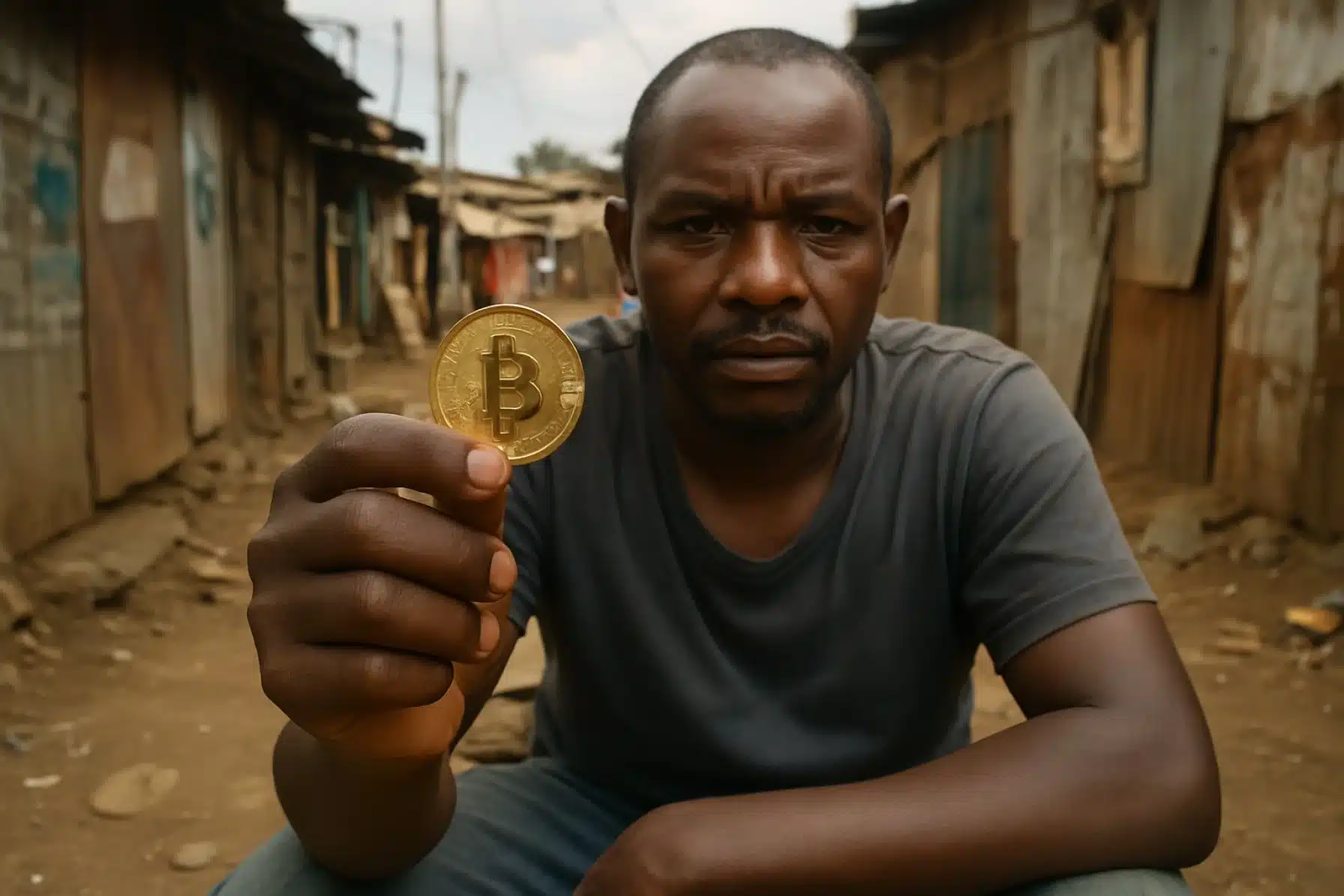A quiet digital shift is taking root in Soweto West, a neighborhood within Kenya’s Kibera slum. Residents who once relied heavily on mobile money services are now embracing Bitcoin as an alternative financial tool.
The shift began in early 2022 when local fintech startup AfriBit Africa introduced Bitcoin payments through a partnership with community-based garbage collection groups. Every Sunday, young residents carry out cleanup activities and receive a few dollars worth of Bitcoin for their work.
According to Ronnie Mdawida, the co-founder of AfriBit Africa, formal banking options are not available to many individuals in Africa. A lack of identification or credit history usually stops one from saving money in the usual ways. Binance’s CEO stated that Bitcoin makes access to financial services both fast and easy.
Also Read: XRP Price Surge Sparks $4.26B Frenzy as Traders Eye Massive Breakout
Garbage collectors have become more important to the changes happening. When they choose to accept Bitcoin, they create greater interest in digital currency among the community members. In addition, small vendors and those who operate motorcycle taxis are now ready to accept Bitcoin for regular transactions.
The company says that it has introduced around $10,000 worth of Bitcoin into Uganda’s local economy. Although the figure is not high, it is essential to people who struggle to survive on less than one dollar per day.
Bitcoin Use Expands Beyond Cleanup Crews into Daily Trade
The Bitcoin used in these transactions is sent via the Lightning Network, a platform that enables quicker and cheaper transfers. Residents like Damiano Magak, a 23-year-old garbage collector and food seller, say they prefer Bitcoin over Kenya’s dominant M-PESA system. He cited lower fees and faster payments as key reasons for the switch.
While M-PESA adds extra fees as the balance increases, you usually do not have to pay much for Lightning Network payments. This has made Bitcoin especially appealing for small and frequent transactions in areas with tight income margins.
Even though consumers seem to like smartphones, issues still exist, such as Bitcoin’s rapidly changing price, which makes it unsafe for anyone dependent on a regular income. The rules guiding cryptocurrency in Kenya are not very clear, which is an extra obstacle to future expansion.
Even despite the problems, there were positive results in Soweto West at the beginning. More people in this part of Nairobi are making purchases with digital wallets, while more businesses take crypto payments, letting Bitcoin slowly change the area’s financial scene for the better.
Also Read: Whales Scoop Up 120M ADA as Cardano Surges—Is a Major Price Move Ahead?
